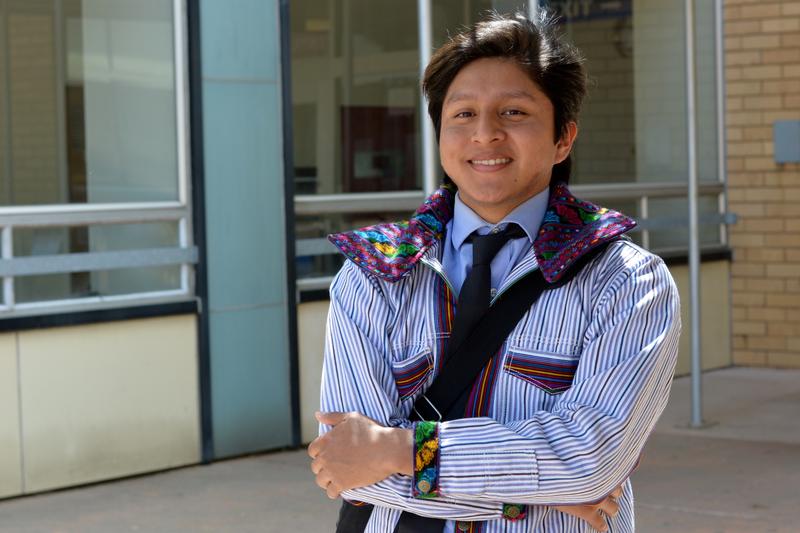When Oswaldo Martín immigrated to East Oakland, California, nineteen years ago, no one in his class or neighborhood spoke his language. He didn’t know Spanish or English—only Mam, one of twenty-two officially recognized Mayan languages in Guatemala. So, 3,000 miles away from his hometown of Todos Santos Cuchumatán, Oswaldo spent his first years in school not talking much. His new classmates mistook his silence for shyness.
But today, Oswaldo’s ability to speak Mam is a sought out skill. Mam-Maya are currently one of the fastest growing populations in East Oakland. Take a bus ride through the Fruitvale neighborhood and you will hear passengers speaking Mam and see women wearing traditional Maya dress: huipiles (embroidered blouses) and cortes (woven skirts). At schools around the district, including Oswaldo’s old elementary school, there is a significant Mam population. Amid this new visibility, there is a real need for interpreters who can speak Mam and English. Local agencies rely on them to connect monolingual refugees and asylum seekers to health and education services.
According to the most recent data released by the Department of Justice, Mam is now one of the top ten languages spoken in immigration court, topping French and Korean. But until recently, courts in the San Francisco Bay Area courts did not understand the distinction between Mayan languages and Spanish, so they often assigned Spanish interpreters, who found it impossible to communicate with their indigenous clients.

This summer, indigenous language interpreters made national headlines as thousands of children were separated from their parents at the U.S.–Mexico border under the current administration’s “zero-tolerance policy.” Since federal immigrant agencies were not informing parents of their child’s location, attorneys and immigrant aid organizations scrambled to help parents reunite with their children. Many of the separated families speak indigenous languages, including Mam, so attorneys turned to indigenous language interpreters.
Now twenty-three years old, Oswaldo Martín was one of the professionally trained and dedicated interpreters who traveled to the detention facilities in Texas to aid attorneys. To interpret in such traumatic conditions is no easy feat, he assures. One has to be versed in legal terminology and understand the ethics of interpreting. But Oswaldo has honed these skills while interpreting in courts across the Bay Area. Since returning from Texas, he has been sharing his experience with other Mam interpreters in his neighborhood to help train them for the difficulties of the job.
Hear the rest of his story here.
Marisol Medina-Cadena is a former video production intern at the Center for Folklife and Cultural Heritage and currently an independent radio producer and documentary filmmaker. She originally produced this audio feature for KALW in San Francisco.


